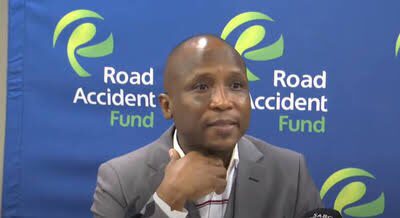Collins Letsoalo, the Chief Executive Officer of the Road Accident Fund (RAF), has declared the organization’s intention to reclaim approximately R500 million annually. This sum is believed to have been “unlawfully claimed” by Discovery Health and other medical aid schemes. Letsoalo asserts that the legal provisions do not support the claims submitted by these medical aid providers.
Legal Grounds for Recovery
In a recent interview, Letsoalo emphasized the Road Accident Fund’s readiness to pursue this matter vigorously. He stated:
Because we are very ready for them, we are going to win this, hands down. But what you must know is that we want to claim all the monies that Discovery and other medical schemes have been claiming from us, because that was unlawful and it was not supported by the law. And in that regard, we will be making the calculations and sending the money to Optima.
When questioned about the current leadership at Discovery Health, Letsoalo clarified:
No, it’s not him, he’s been replaced.
The discussion also touched upon previous statements regarding the amount of money paid out by the Road Accident Fund. Letsoalo addressed these concerns by explaining:
Yes, he said 500 million a year they are losing by us not paying them. And we’re saying, but where in the law does it say you will be paid from the Road Accident Fund? The Road Accident Fund pays claimants and it does not pay medical schemes.
Letsoalo further elaborated on the Road Accident Fund’s stance, highlighting the distinction between Road Accident Fund and insurance providers:
Consequently, we disagree with you. And therefore, of course, if they don’t owe us that money, if they got it and the law does not support it, then it’s very clear the law does not support it. It’s very clear that subrogation does not apply.
It’s very clear that Road Accident Fund is not an insurer and that medical schemes themselves are not insurers and therefore they can’t be claiming and using insurance principles. This is very clear. We’ve been saying that since time immemorial.
It’s just that when we say this, people say, well, RAF does not want to pay. It’s not because we don’t want to pay. We want to pay people that want to pay validly.
And we are saying that Discovery and the medical schemes industry have never been valid claimants and therefore they shouldn’t, which is why they were saying to their members, claim from RAF. Once you get the money, then pay us that money. And why didn’t they come and claim themselves?
Very clearly, this thing was done backhanded. So we are saying that they need to pay for it.
Regarding the financial implications of these claims, Letsoalo provided further insights:
Well, no. What we know is that it has been a long time since they’ve been doing this. We were not aware of it.
Now we are aware that they’ve been doing it. So we’ll do the calculations and go back. We’ll look at who were their members.
I remember that they, when we entered, they had an agreement, an SLA with the Road Accident Fund to give them information about their claimants. So we will go back to that information and use it to calculate backwards. But I think it’s about half a billion a year going backwards.
If the allegations hold true, the financial strain on the Road Accident Fund could have broader implications for the general populace. The Road Accident Fund plays a crucial role in providing compensation to victims of road accidents, and any reduction in its funds could impact its ability to serve claimants effectively. This situation underscores the importance of transparency and accountability in managing funds that ultimately support the public.

















